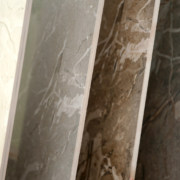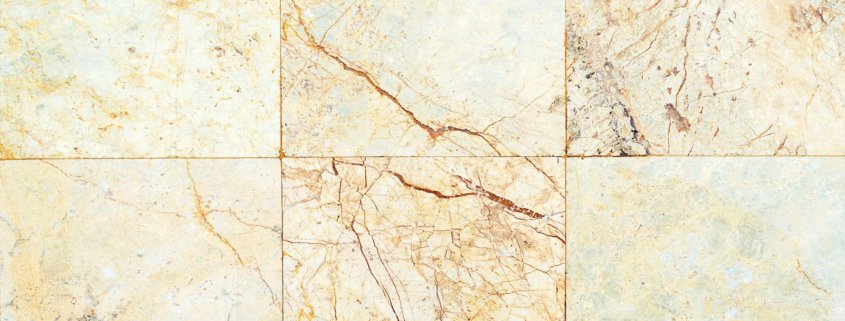Grout and glue for marble tiles
Choosing grout and glue for marble tiles
Marble is a hard and compact yet delicate natural stone which can be used to give a room a hint of luxury or create a special ambient. Marble is commonly used as floor or wall tiling. In this article we are taking a closer look at the needs of a marble tile, and how to define the best grout and glue for marble tiles.
Marble tiles require special attention
Marble is a metamorphic stone which is formed as a result of crystallization of limestone caused by extremely high temperature. The tiles are recognized by their extraordinary vein-like texture which are sheets or plates of crystallized minerals. As marble is a natural stone, laying marble tiles require special attention regarding several aspects:

- Porosity: as marble is formed under high temperature, it has a hard and compact structure as well as a smooth, rather non porous surface. Due to the non porosity there are multiple options for grout and glue for marble tiles.
- Movement: even though marble tiles are not very porous, they can expand when subject to high temperature, or temperature fluctuations, like in the case of floor heating, or extreme humidity like in bathrooms. The possible movement, or expansion, of the tiles must be considered when choosing grout and glue for marble: one should opt for flexible glue and grout in order to prevent the tiling from failing.
- Color: Marble stone comes in a range of colors, however, in the US and Canada the black and white shades are the most popular. When choosing glue and grout for marble tiles, the color of the tile sets some limits. White and other light colored tiles should always be granted a white tile adhesive in order to prevent a darker color from shining through and darkening the tile´s appearance. The choice of grout also affects the visual appeal of the tiling. The grout can either be matching with the tile color or contrasting.
The right glue for marble tiles
When choosing a tile adhesive for marble tiles it is important to picture the tiling. Marble tiles are often also dry laid before the actual tiling takes place in order to guarantee the veins form a desired pattern on the finished tiling.
Earlier we have distinguished between three types of tile adhesive for natural stone, in the case of marble, all of the options are available. However, if choosing for a cement based tile adhesive, this should be thin set instead of thick bed. Cementitious tile glues are suitable for most marble tiling applications, horizontal and vertical. Nevertheless, when the tiling is likely to be subject to temperature extremes or fluctuation, a slightly more expensive construction epoxy should be considered. On the other hand, if the tiles may be affected by humidity, a polymerized adhesive offers a considerable option. Like epoxies, polymerized adhesives are also flexible and can withstand possible movement extending the life expectancy of the tiling.
Marble is also a common material of veneer. There is a special mortar for these applications.
Grouting marble tiling
Once the marble tiles have been set to their place with adhesive, it is time to grout the seams in order to seal and fill them. Before grouting, the tiles should be cleaned and sealed in order to create a protective layer on the tiles. The sealer not only protects the tiles from the grout but also later from dirt and staining.
There are primarily two types of grout for natural stone, further divided into sub-types of grout. Both cementitious and epoxy grout are suitable for marble with some precautions. Cementitious grout is by far the most common option for natural stone. It exists as sanded, non sanded and latex modified variations. The latter more flexible than the others. non sanded grout is more popular than sanded grout as marble tiling usually has narrow seams. In case your tiling involves wide seams, and you decide to use sanded grout, be aware that the sand in the grout may scratch the surface of the tile.
An epoxy grout is more expensive than cementitious grout, but it is easier to clean and keep clean, does not require maintenance next to cleaning and it resists humidity and chemicals better. Epoxy grout is also somewhat flexible and therefore, suitable for tiling that may experience movement. There are also superior pre-mixed grouts that have very similar properties to epoxy grout.
Get the best grout and glue for marble tiles
For more information or if you are in need of adhesive or grouting solution for marble tiling, contact us. Our specialists are determined to find the best grout and glue for marble tiles in your project.



